Theology and Philosophy in Conversation on Human Flourishing
I would like to research and eventually write a book to investigate comparatively how various religious traditions, such as Christianity, Islam, Buddhism, Hinduism, and Yoruba religion; theological schools, such as liberation theology, black theology, reformed theology, feminist theology, and process theology; and major philosophical schools, such as existentialism, German idealism, American pragmatism, and empiricism talk about the way to the common good and human flourishing in the world.
Month: August 2023
“Lonely Lakes Flow”: A New Poem
“Lonely Lakes Flow”
To the fountain of love
Summer waves change the mood
Lonely lakes flow
To the fountain of love
Summer waves change the mood
He whispers softly to the coloured lights
‘I choose to trust’
He takes her to the deepest ocean to make her feel his love
The water will show her his vastness and depth
A thousand roses is not enough to measure their time
Sweet melodies like honey drips into the cracks
He sings a song only she can hear
They find the most beautiful moments in the sea
A dream-like haze into another universe
A love that echoes fervently into another dimension
Let it be
Waves
Love in movement
where hearts share a cosmic dance
Bodies and words collide
Surrendering to a slavish degree
Like a heart that needs a beat
Experiencing the freedom of being
Clinging to the everlasting portion.
“Love in Fragmented Pieces”: A New Poem
“Love in fragmented pieces”
Although separated, we are still connected.
Although living afar, we are close to our stars.
We have the same vibration:
Your heart in my heart,
My spirit in your breath.
In my inner being, the echo is your voice.
Echoes of our hearts I still hear,
and I am still searching…where our paths first intertwined.
You are the poet who creates love in fragmented pieces.
I am the language through which you make me feel high.
You are the verb that nourishes our intimate labor.
You are my first fruit, my resting place charged with untamed energy.
They say, “She is the Frantoio olive that lights up with white blooms
in your eternal summer.”
We consecrate the commitment with a kiss.
To you, I make a promise for a lifetime of stability.
We are inextricably bound to our freedom to love, to heal,
and to carry together the weight of the star.
To dream of a world held in high esteem with you…
pleasurable experiences and joyful raptures with you..
I am your burning war of passion.
You offer a bottomless well of trust and strength that revitalizes me.
You can’t run away forever from what your heart desires.
I may not always love you the way I should,
but you will never have to doubt my sincerity.
I want to hurry home to you to tell you this:
“I will make you so proud of our young, summer love.”
You are a little mystery that walks into my life,
and I am evolving with you.
I have missed you for so long, for a thousand years in my past.
I will say a little prayer for you,
and make a deal with God: to keep you safe,
to shield you from the pain of denial and loneliness,
and to imagine the future with loving eyes.
You and I have a hold on right from the start—
a grip so tight and so strong we should not tear apart.
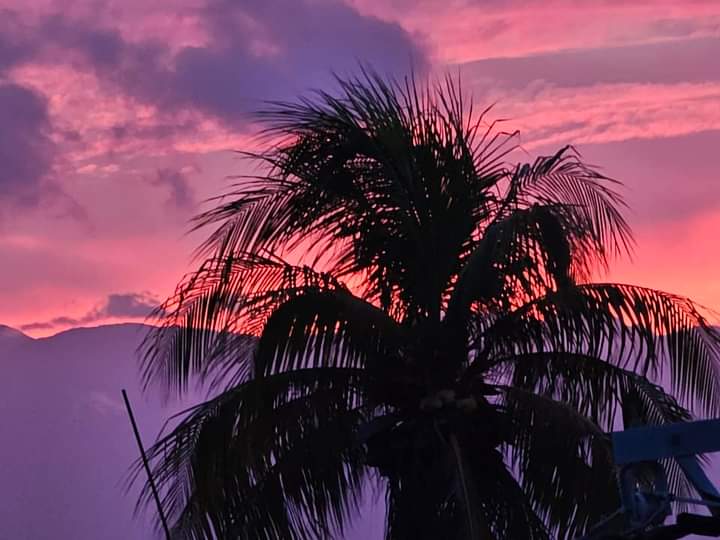
“The Experience of a Young Immigrant”
“The Experience of a Young Immigrant”
After I graduated from High School in 1997 or 1996, I wanted to be financially independent because I never liked asking my mom or dad for money. I wanted to get a better job than being a bagger at Winn Dixie or an Auto Parts Specialist at Discount Auto Parts. I also wanted to get paid more money than what I was getting paid at Winn Dixie as a stocker while taking classes in College.
As a result, I drove my little car to Miami for about three or four days that last week in March 1997–from Fort Lauderdale, Florida to get my education or training to be certified as a security guard (“Basic Private Security School” ). I successfully completed my training on March 31, 1997 (26 years ago) and obtained my license by the State of Florida.
***In fact, I got my first job at 16 years old at Winn Dixie and worked there as a bagger and stocker. I saved my money for about two years and bought my first car: a Green 1997 Toyota Tercel. I was able to save $3000 in two years to buy that car. That was the greatest achievement in my life as an 18-year-old man. I didn’t want any financial assistance from my parents. I worked hard and sometimes I asked the manager to allow me to work overtime as a 16/17 year-old young man. He was gracious enough to honor my request.
I worked hard.
I saved all the money I made.
I bought my car on my own without my parents’ assistance.
I remember both my parents and older siblings were proud of me, and I was proud of myself–even until today. I never believed in free lunch as a young Haitian immigrant. My parents have taught me education was the key and work was my dignity.
When I came to the United States at 15 years old from Haiti, my father said three things to me and my older brother:
1. Stay in school
2. Don’t hang out with the bad crowd
3. Education is your key to success .
We both believed him and actually committed ourselves to pursue an education wholeheartedly. My father was right.
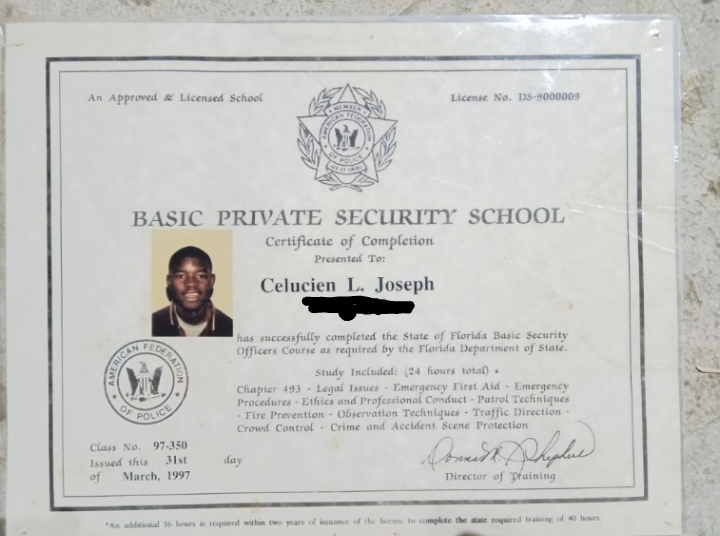
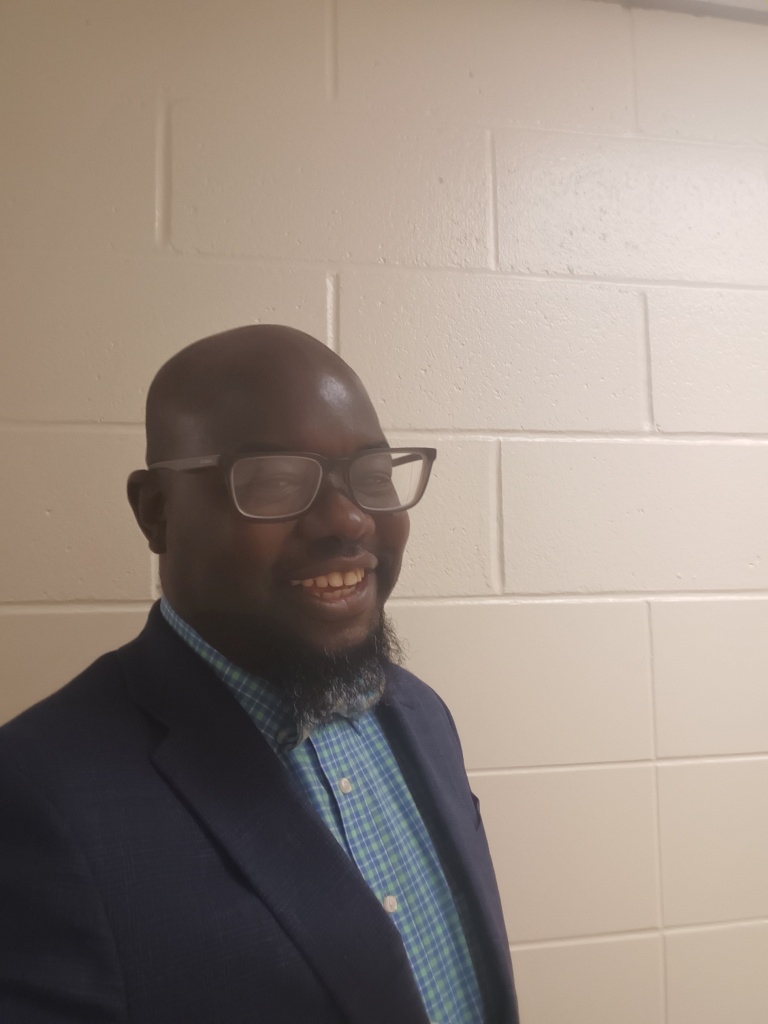
‘Help Me Choose the Book Cover”
“Help Me Choose the Book Cover”
I have two new books coming out in the new year 2024, between January and May. The first one is called “Vodou and Christianity in Interreligious Dialogue” (Wipf and Stock Publishers), and the second one is titled “Evangelicals, Catholics, and Vodouyizan in Haiti: The Challenges to Live Together” (Bloomsbury Publishing).
Both texts focus on the imperative of interreligious dialogue and education to (1) help strengthen the democratic life in Haiti, (2) foster a more liveable and hospitable civil and political societies, and (3) promote more rights and freedoms between Haiti’s three major religious expressions: Vodou, Catholic Christianity, and Protestant Christianity.
I have the pleasure to serve as the lead editor for both books. I even crafted the ideas behind both texts and invited a series of talented scholars and thinkers to make their distinctive contributions towards the philosophy and objectives of both book projects. If there’s anyone to blame, I will take the blame. 😊
Good People: we have already chosen the book cover for the first volume, which I have shared with you back in June. Now, I would like you to help me choose the cover for the second book: “Evangelicals, Catholics, and Vodouyizan: The Challenges to Live Together” (Bloomsbury Publishing).
Which cover do you like?
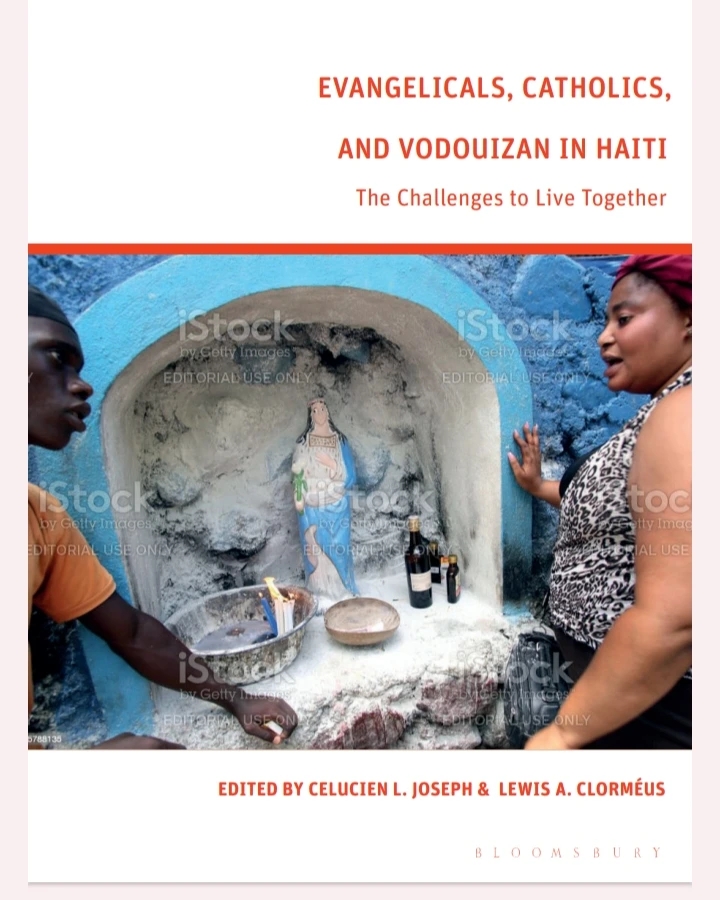


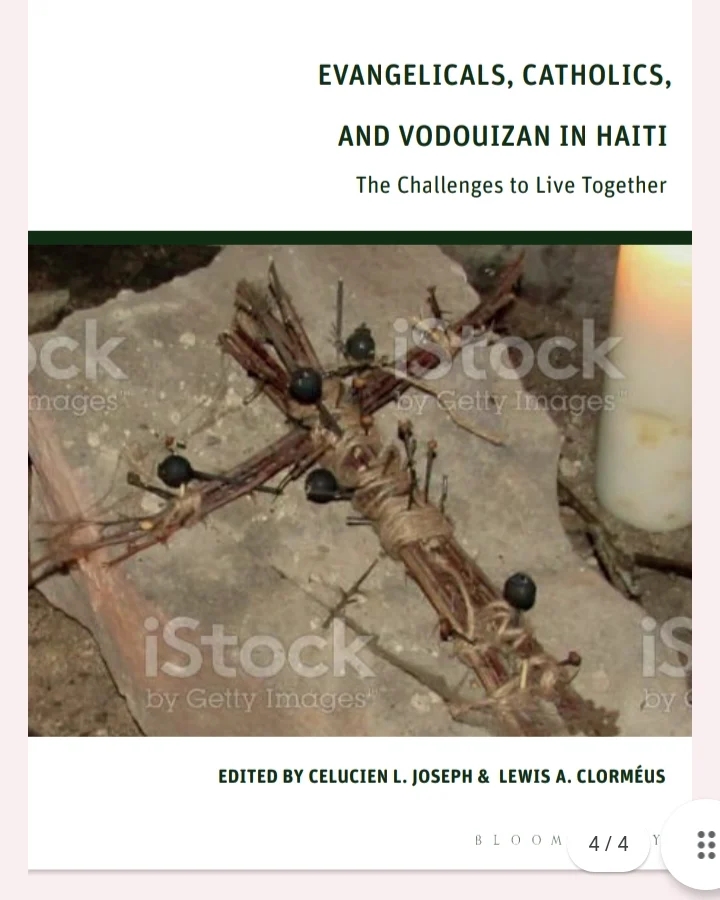
“Who sings “Je l’aime à mourir” (“I love her to death”) better/best, Françis Cabrel, Shakira, or Jacques Sauveur Jean?”
“Who sings “Je l’aime à mourir” (“I love her to death”) better/best, Françis Cabrel, Shakira, or Jacques Sauveur Jean?”
Shakira sings the song (the bilingual edition: Spanish and French) “Je l’aime à mourir” (“I love her to death”) better than the famous French singer-songwriter Françis Cabrel (he is one of my favorite artists of all time) who composed the song in 1979 (Man, I was only a one-year-old baby boy. lol). When he released the album in 1979, it is reported more than 600,00 copies were sold in France only.
In 2011, Shakira performed both “La Quiero a Morir” and “Je l’aime à mourir” live in Paris. Here is her rendition: https://www.youtube.com/watch?v=92tkZQB-Uj4
*Her blue dress is gorgeous and quite stunning. 🙂 🥰❤️
Jacques Sauveur Jean even did a better job than Cabrel and Shakira in the bilingual rendition in French and Creole. He added a little Caribbean flavor (Haitian Konpa) to it. He recorded the song in studio in 2007.
Jackito, “Je l’aime à mourir”: https://www.youtube.com/watch?v=tO7N61mUzmk
Here is Françis Cabrel singing the original song in 1979 (“Je l’aime à mourir”): https://www.youtube.com/watch?v=soPhiV2epM0
Here are the most beautiful lines from the song:
Elle a gommé les chiffres
Des horloges du quartier
Elle a fait de ma vie
Des cocottes en papier
Des éclats de rire
Elle a bâti des ponts
Entre nous et le ciel
Et nous les traversons
À chaque fois qu’elle
Ne veut pas dormir
Je l’aime à mourir…
Elle a dû faire toutes les guerres
Pour être si forte aujourd’hui
Elle a dû faire toutes les guerres
De la vie, et l’amour aussi
Vous pouvez détruire
Tout ce qu’il vous plaira
Elle n’aura qu’à ouvrir
L’espace de ses bras
Pour tout reconstruire
Pour tout reconstruire
Je l’aime à mourir
[She erased the numbers
From the clocks in the neighborhood
She turned my life
Into paper dolls
Bursts of laughter
She built bridges
Between us and the sky
And we cross them…
She must have fought all the wars
To be so strong today
She must have fought all the wars
Of life, and of love too
She lives her best
You can destroy
Whatever you like
She will only have to open
The space of her arms
To rebuild everything
I love her to death.]
***That is exactly what happens to me or what I do on Facebook whenever I have too much time on my hands. lol
Can you feel the love Tonight?
Can you feel the love tonight?
When I was in High School in the early 1990s, I used to listen and even sing Bryan Adams’ remarkable song “Please forgive me,” which came out in 1993. Consider these enduring words of pure gold:
“So if you’re feeling lonely, don’t
You’re the only one I’ll ever want
I only want to make it good
So if I love you, a little more than I should….
The one thing I depend on
Is for us to stay strong
With every word and every breath I’m praying
That’s why I’m saying”
Bryan Adams, “Please Forgive Me”: https://www.youtube.com/watch?v=9EHAo6rEuas
Another favorite song of mine was “Ne me quitte pas” (“Do not Leave Me”) by the renowned Belgian singer-songwriter Jacques Brel, which he composed in 1959. I truly believe this is the most beautiful love song every written in the history of romantic music. The words of the songs are deeply grounded in covenantal love. Consider the eternal words from this stanza:
Moi, je t’offrirai
Des perles de pluie
Venues de pays
Où il ne pleut pas
Je creuserai la terre
Jusqu’après ma mort
Pour couvrir ton corps
D’or et de lumière
Je ferai un domaine
Où l’amour sera roi
Où l’amour sera loi
Où tu seras reine
Ne me quitte pas
[I, I will offer you
Pearls of rain
From lands
Where it doesn’t rain
I will dig the earth
Until after my death
To cover your body
With gold and light.
I will create a domain
Where love will be king
Where love will be law
Where you will be queen
Don’t leave me]
“Ne me quitte pas,” Jacques Brel: https://www.youtube.com/watch?v=Vz6r0TP4FBI
At any rate, I used to sing both songs frequently as if I had broken a girl’s heart and I was seeking her forgiveness and begging her to return to me. 🙂 🙂 🙂
The fact was that I did not have a girlfriend in 1993 or was I even dating in my freshman and sophomore years. Hey, I was not even in love or maybe, I “Wanna Be Loved,” in the words of Buju Banton 🙂 🙂 🙂
Buju Banton, “Wanna Be Loved” : https://www.youtube.com/watch?v=YwSU0rcVTaE
Wanna be loved
Not for who you think I am
Nor what you want me to be
Could you love me for me?
I wanna give you me heart
Don’t want to take it back
This is my chat-cho
Everybody’s laughing
Some say I’m silly
No infatuation, no love fantasy
Woman you lead my life on a string
I can’t tale the on and off thing
I’m oh so lonely inside so I sing…
Cross my heart, every day I live I pray
And I know she’ll come my way
Night and day for this woman I pray
“Questioning Religion: The Urgent Call for Mental Emancipation and Decolonial Practice”
“Questioning Religion: The Urgent Call for Mental Emancipation and Decolonial Practice”
About a year ago, I announced online that I will be writing an academic article on this beautiful, thought-provoking, and groundbreaking song “E Si’ L Pavle Vini” (2014)/ (“What if He Doesn’t Want to Come”) by the talented Haitian rasta artist Tiga Jean Baptiste. I also added another song to my analysis, “Guede/Gede” (2004) by the famous Haitian band Rasin Bwa Kayiman. I am pleased to inform you that I have written the article and submitted it to one of my favorite academic journals on religion, theology, and cultural criticism.
In my essay, I offer an exegetical reading of the rhetorical (postcolonial) language and (decolonial) message of the two songs that are written or sung within the framework of a postcolonial critique of imperial and neo-colonial Christianity. In both songs, the artists make counterclaims toward missionary Christianity and call upon the Haitian people to reject its colonized form and reclaim their ancestral traditions. I examine the songs from four different and complementary lenses: political theology, liberation theology, postcolonial criticism, and decolonial framework. At the end of the essay, I make some recommendations to both Christian and Vodou practitioners to engage in healthy interreligious dialogue and education that will contribute to greater religious tolerance and understanding toward the common good in society.
Both songs address the cultural alienation and enslavement of the Haitian people brought by European colonization and imperial Western Christianity, supported by American imperialism. The songs call for the decolonization and emancipation of the Haitian mind and to reject both the colonized version of Christianity and for the Haitian people to embrace the Haitian cultural identity rooted in the practices of African ancestral retentions in Haiti and Haitian Vodou.
I shall hear from the editor maybe in two to three months if the article has been accepted for publication. I will keep you posted during the reviewing process. While both of us are waiting to hear from the reviewers, let us enjoy together this beautiful lyric: “E Si’ L Pavle Vini”
Happy listening!.
August 14: “Bwa Kayiman in Haitian Memory and the Birth of Haiti”
“Bwa Kayiman in Haitian Memory and the Birth of Haiti”
You are invited to participate in this important event. See the flyer for more details!
Topic: Bwa Kayiman in Haitian Memory and the Birth of Haiti
Time: Aug 14, 2023 07:00 PM Eastern Time (US and Canada)
Join Zoom Meeting
https://us02web.zoom.us/j/83646474928?pwd=cjE3NGpGakg3ak5YR1IybTBDdWt4dz09
Meeting ID: 836 4647 4928
Passcode: 119616
—
One tap mobile
+13462487799,,83646474928#,,,,*119616# US (Houston)
+16694449171,,83646474928#,,,,*119616# US
—
Dial by your location
• +1 346 248 7799 US (Houston)
• +1 669 444 9171 US
• +1 669 900 9128 US (San Jose)
• +1 719 359 4580 US
• +1 253 205 0468 US
• +1 253 215 8782 US (Tacoma)
• +1 507 473 4847 US
• +1 564 217 2000 US
• +1 646 558 8656 US (New York)
• +1 646 931 3860 US
• +1 689 278 1000 US
• +1 301 715 8592 US (Washington DC)
• +1 305 224 1968 US
• +1 309 205 3325 US
• +1 312 626 6799 US (Chicago)
• +1 360 209 5623 US
• +1 386 347 5053 US
Meeting ID: 836 4647 4928
Passcode: 119616
Find your local number: https://us02web.zoom.us/u/kdbAURcBdr

“Can Haitian Evangelicals save Haiti by themselves?”
Here’s my recent interview (July 30, 2023) with Josué Lexidor, the host of Pwen Wouj. The title of this conversation was “Can Haitian Evangelicals save Haiti by themselves?”
If you want to know how I responded to the question, go listen to this wonderful conversation:
**The interview is in Kreyòl